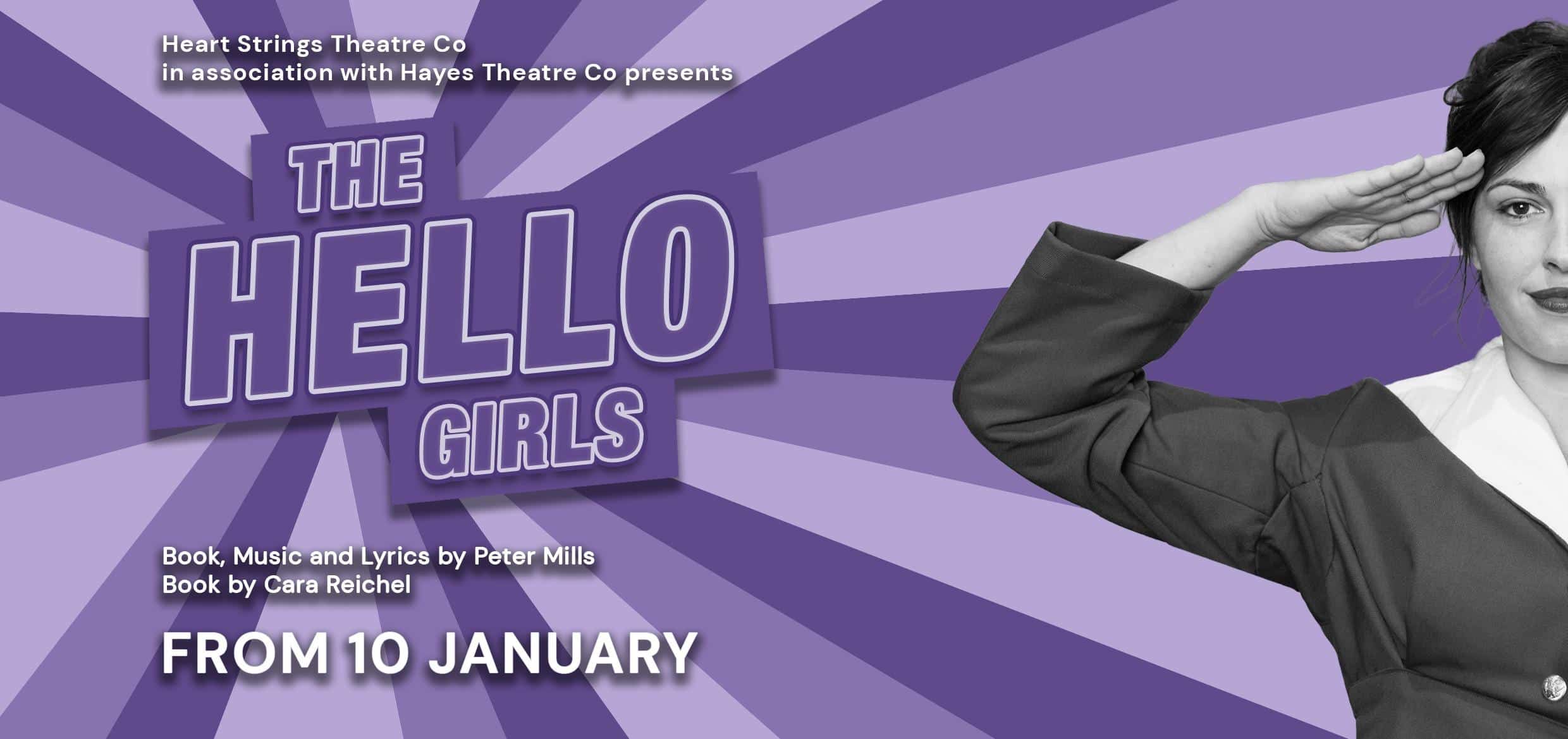The Hello Girls have arrived at Hayes Theatre, and Sydneysiders are in for a treat. Friday night’s audience were enthralled, right from the raucous opening exhortation to “Answer The Call” to the very last reminder that we are all “Making History”. With phenomenal performances from all the actors, this is a show that is definitely going to be a hit.
The Hello Girls tells the little-known story of the first American women recruited into the US Army as switchboard operators during World War I. They may not have carried guns or fought on the front lines, but their service was indispensable to ensuring that communications across the sphere of war remained open and that orders and troop movements could be relayed between officers.
It is essentially a workplace musical (if such a genre exists!) about a group of women trying to do their jobs well in extraordinary circumstances. There’s no suggestion that these switchboard operators single-handledly saved the day or played a crucial role in one defining event. The Hello Girls didn’t win the war – they were one of many people who did their jobs and contributed to the overall success of the armed forces. The overarching theme is one of connection rather than heroism.
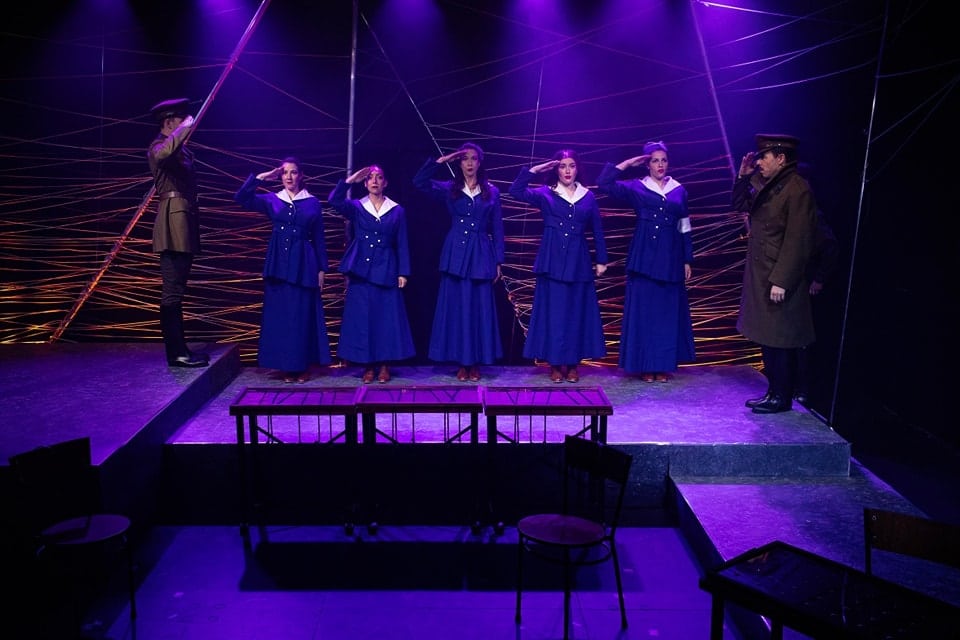
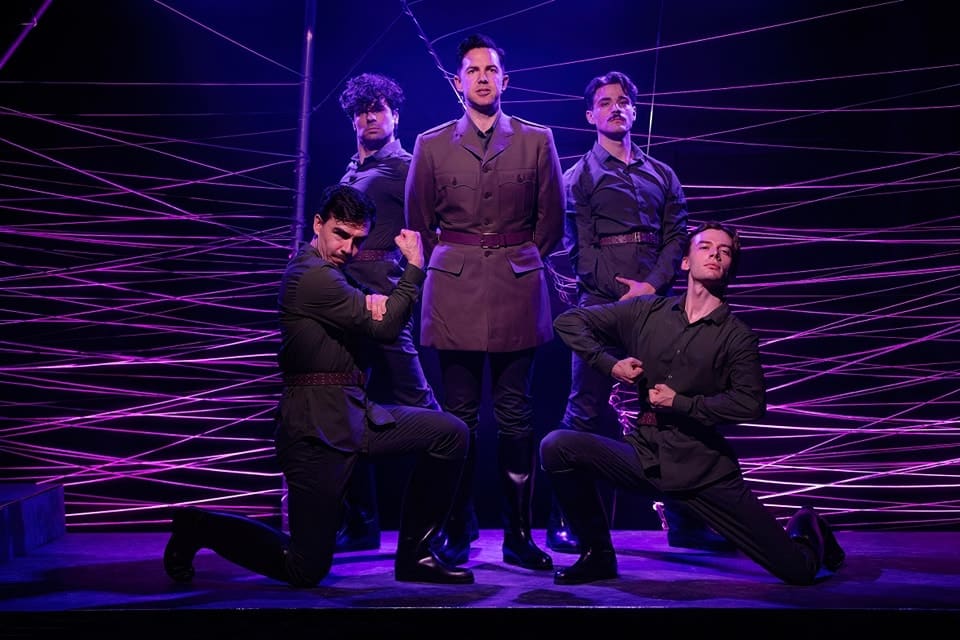
The set reflects this theme with a simple but effective design. Telephone wires strung between poles create netting and transparent walls, which add a lovely texture to the multi-level stage. Wheeled tables with perspex lids act as switchboards, desks and even a piano. Hayes Theatre is a small space, so performances always feel intimate, but there was still a roominess to the set that made it feel larger than it actually is, even with all 10 cast members on stage.
And what a cast! As Chief Operator Grace Banker, Rhianna McCourt brought a wonderful strength to the role, with powerful vocals paired with a nuanced performance. Kira Leiva plays Suzanne Prevot with sass and charm, Kaori Maeda-Judge is a quietly determined Bertha, and Kaitlin Nihill is a fiery Louise Lebreton. Special mention must go to Nikola Gucciardo, whose backwater character Helen Hill almost steals the show with her wide-eyed naivety and guilelessness. All five performers were terrific and clearly masters of their craft.
Lest you think it was an all-female show – fear not! The five male performers were also excellent, playing soldiers, officers, musicians, dancers and a prisoner of war. The main social commentary came through their choreography choices, with the men stepping in as background singers and dancers to the women’s story.
Interestingly, the script doesn’t dig deep into social commentary. It could be called a ‘feminist’ story, but The Hello Girls is not bogged down with ‘issues’. While we do see these women in harsh conditions and facing the reality of war – particularly in the excellent number “Quinze Minutes”, where the women literally have 15 minutes between bombs to make it to their workplace – there is a light touch that emphasises the just-get-on-with-it attitude that is essential to teamwork and success in adversity.
Some might be disappointed at the lack of high stakes and/or romance. There is no powerful transformation of one character and no real perilous struggle to achieve their goal. I liked that the focus was more on camaraderie than personal relationships, and there weren’t any intimate duets. Interestingly, the one bit of (straight) romance that does quietly blossom involves a character who gave off seriously queer vibes, but perhaps that was just the trousers 🙂
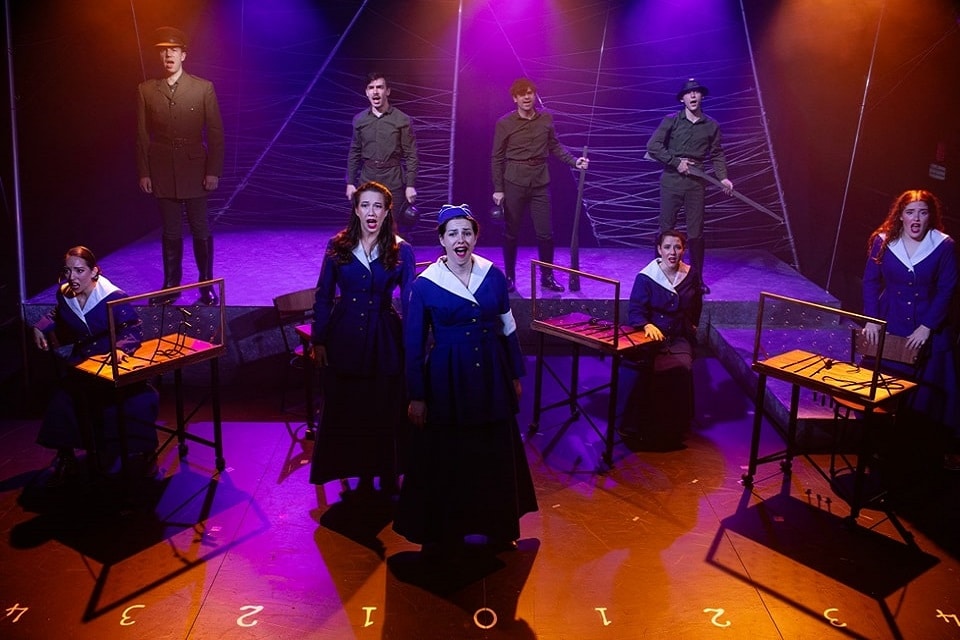
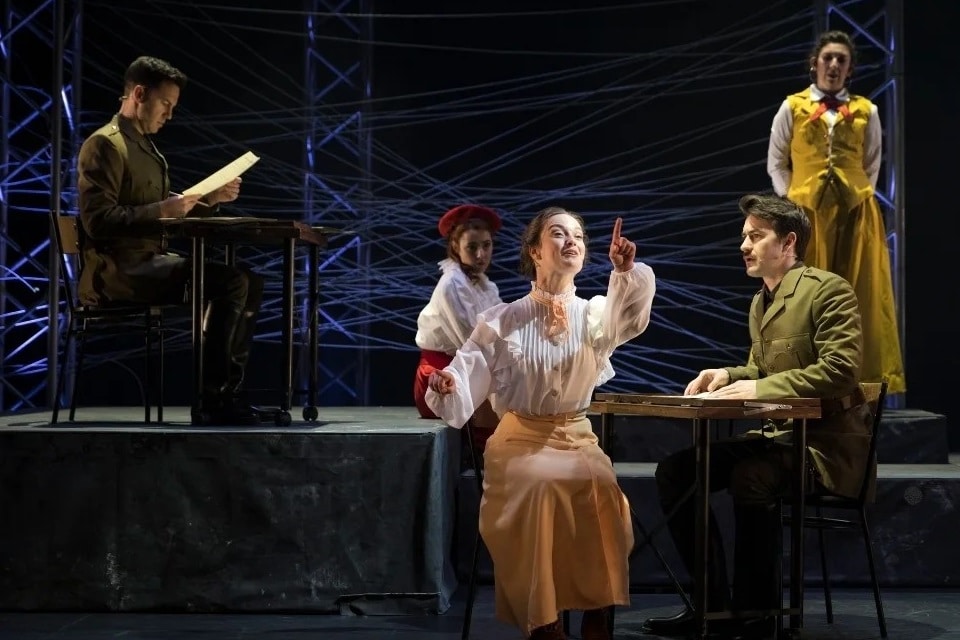
The costuming is restrained because everyone is in uniform for much of the play, but they all managed a bit of individuality nonetheless. The director has chosen to bookend the play with the cast in contemporary outfits, an excellent way to gently ease us in and out of a story set more than 100 years ago. Hard to believe! Especially considering how the struggle for recognition remains real for so many women.
All in all, this was an extraordinary night out for audiences of all types. While centred on women, it’s not really a feminist story but a story of people just wanting to step up and prove themselves. As producer Ylaria Rogers says in her notes, it is “a call to arms to anyone who has ever felt left behind, forgotten, and unacknowledged for the part they play in this world.”
Everyone left the theatre with a little more knowledge of these people and their part of history – and a little more joy. And that’s precisely what theatre like this should provide.
This review also appears on It’s On The House.
